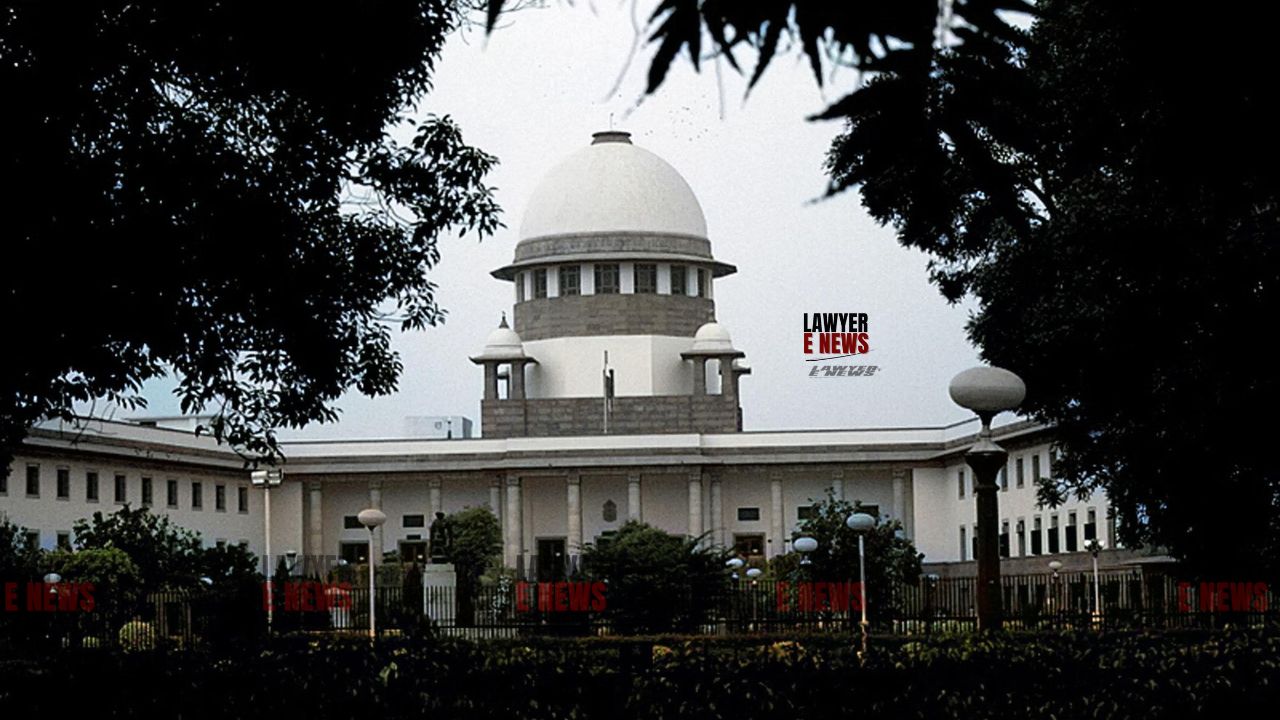-
by Admin
15 February 2026 2:36 AM



Supreme Court of India quashed the termination orders of several doctors under Article 311(2)(b) of the Constitution. The Court held that the State failed to demonstrate the impracticability of conducting disciplinary inquiries against the respondents and replaced the termination orders with voluntary retirement orders under Article 142 of the Constitution to ensure complete justice.
"Absenteeism by Employees Does Not Justify Non-Adherence to Disciplinary Process"
The Court criticized the State for failing to justify the application of Article 311(2)(b), which requires evidence that holding a disciplinary inquiry is impracticable. While the doctors' absenteeism was condemned, the Court found the State’s inaction in deciding long-pending voluntary retirement applications equally unjustified.
Bench of Justice Abhay S. Oka and Justice Augustine George Masih delivered a judgment addressing appeals filed by the State of Uttar Pradesh against the Allahabad High Court’s orders reinstating several doctors terminated under Article 311(2)(b) of the Constitution. The respondents, who had applied for voluntary retirement (VRS) but were terminated without inquiry, challenged their termination and secured reinstatement with back pay and benefits in the High Court.
The Supreme Court, while setting aside the termination orders, refused to restore the respondents to service, instead deeming their VRS applications accepted from the termination date (May 3, 2010). The Court also denied the respondents back pay but directed prospective pension benefits.
The respondents, doctors employed by the State of Uttar Pradesh, applied for VRS between 2006 and 2008 but did not receive any decision from the State. They subsequently remained absent from duty for several years.
On May 3, 2010, the State terminated their services under Article 311(2)(b) of the Constitution, citing the impracticability of holding disciplinary inquiries due to widespread absenteeism by several thousand doctors.
Aggrieved, the respondents challenged the termination orders in separate writ petitions before the Allahabad High Court. The High Court quashed the termination orders, holding that Article 311(2)(b) was inapplicable, and ordered reinstatement with full benefits.
The State appealed to the Supreme Court, contending that large-scale absenteeism made it impracticable to conduct inquiries.
Legal Issues
Was the termination of the respondents under Article 311(2)(b) of the Constitution justified?
What relief could be granted to the respondents given their prolonged absence from duty and pending VRS applications?
Can the Supreme Court exercise its powers under Article 142 to ensure complete justice in such cases?
Termination Under Article 311(2)(b): Requirements Not Met
The Court reiterated that Article 311(2)(b) of the Constitution allows termination without inquiry only when it is "not reasonably practicable" to hold a disciplinary inquiry. It noted:
“The termination under Article 311(2)(b) requires the employer to demonstrate specific facts showing impracticability. The appellants failed to provide any evidence justifying the claim that disciplinary proceedings could not be conducted.”
The Court held that widespread absenteeism does not, by itself, render inquiries impracticable, as the State could have proceeded with individual disciplinary actions.
Absenteeism and Delay in Deciding VRS Applications
While acknowledging the doctors’ prolonged absence from duty, the Court condemned the State’s failure to decide their VRS applications, observing:
“The appellants kept the VRS applications pending for unreasonably long periods without providing any justification. Such inaction is indefensible.”
At the same time, the Court criticized the respondents for resorting to absenteeism instead of pursuing legal remedies when their VRS applications were not decided.
Inappropriate High Court Relief of Reinstatement
The Supreme Court found that the High Court erred in ordering reinstatement with back pay and benefits, stating:
“Given the respondents’ conduct of remaining absent for years, reinstatement was inappropriate. The most suitable relief would have been to decide the VRS applications promptly.”
Relief Under Article 142: Substitution with Voluntary Retirement
Invoking Article 142 of the Constitution to ensure complete justice, the Court substituted the termination orders with voluntary retirement orders. It directed that the respondents be treated as voluntarily retired from May 3, 2010, the date of termination. However, the Court denied the respondents back pay or arrears, limiting their entitlement to prospective pension benefits.
Termination Without Inquiry Unjustified: The appellants failed to justify the invocation of Article 311(2)(b), as no evidence of impracticability to conduct inquiries was provided.
Inappropriate Reinstatement: The High Court’s order of reinstatement with benefits was unwarranted given the respondents’ absenteeism.
Relief Under Article 142: The Court balanced equity by substituting termination orders with VRS and granting pension benefits prospectively.
The Supreme Court partly allowed the appeals, quashing the High Court’s orders of reinstatement and the termination orders issued by the State. Key directions included:
Acceptance of VRS Applications: The respondents’ VRS applications were deemed accepted with effect from May 3, 2010.
Prospective Pension Benefits: Pension was to be fixed based on voluntary retirement effective from May 3, 2010, but payable only prospectively from the date of this judgment.
No Back Pay or Arrears: The respondents were denied arrears of salary or pre-pension monetary benefits.
Time-Bound Compliance: The appellants were directed to release monetary benefits within three months.
The appeals were disposed of without costs.
This judgment strikes a balance between holding the State accountable for procedural lapses and ensuring that employees do not unduly benefit from their own misconduct. By substituting termination with voluntary retirement and limiting monetary entitlements, the Supreme Court has ensured justice while maintaining discipline in public service.
Date of Decision: December 19, 2024
